Teaching programme Mongolia
Primary teachers in Mongolia (over 60 teachers and subsequently around 700 students) have received theoretical and practical training in this teaching programme during three-day workshops that include an excursion on the last day to a decentralised wastewater treatment plant for wood (willows) production.
A brief overview of the programme content is presented here. The programme takes into account the particular hydrological, cultural and social conditions of Mongolia.
The programme consists of six units that are identified with a key illustration from the student workbook in each case; the content and activities are outlined below each illustration.
Unit 1: Water cycle – water in nature
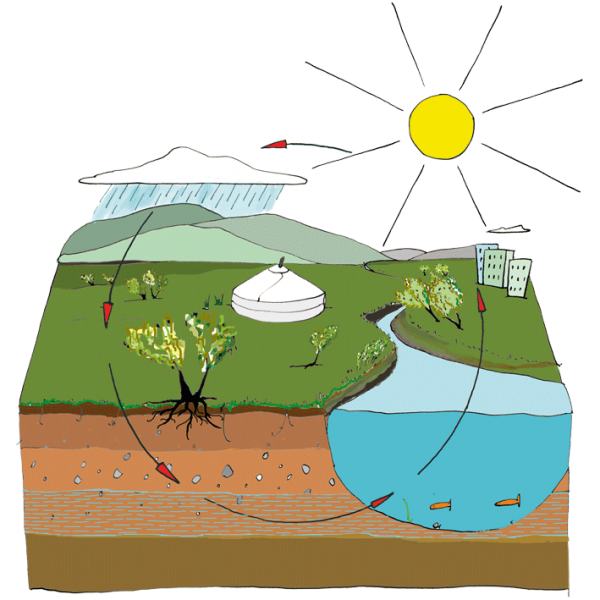
Students form working groups at random for the following six units in a playful and enjoyable manner. They familiarise themselves with the concept of the water cycle: they learn about the various processes within the water cycle, the various water states and their effect on water quality.
Unit 2: Household water consumption in Mongolia – water in our life
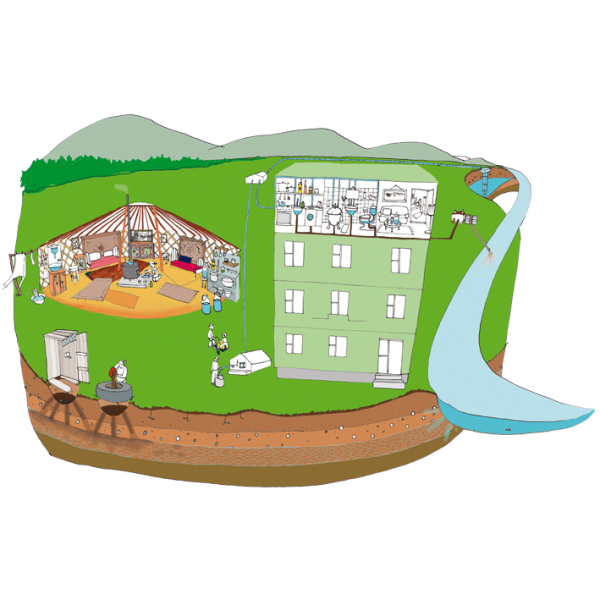
This unit introduces students to the topic of household water consumption so that they can identify where they use water at home in their everyday activities and how wastewater is generated through this use. They get to know where the wastewater goes when it leaves their homes and learn about the need to treat wastewater to avoid environmental pollution and health problems.
Unit 3: Water pollution – artificial wastewater production and analysis
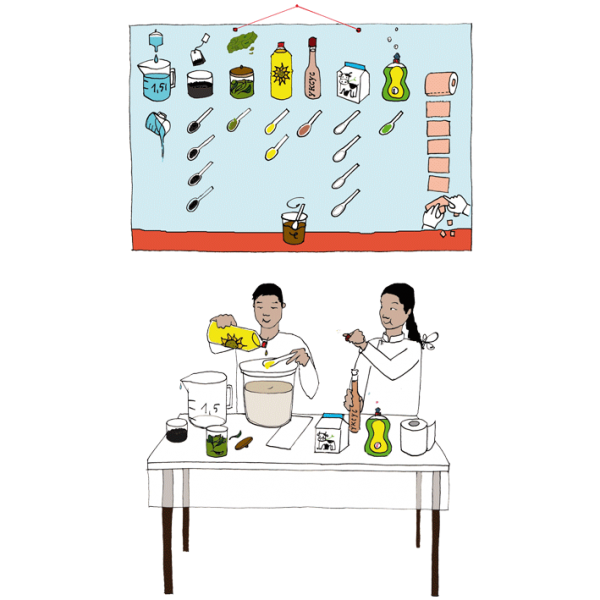
Students produce artificial wastewater with safe ingredients and observe how the water quality changes. They learn the principles of water analysis by measuring simple parameters.
Unit 4: Wastewater treatment I – constructing a filter
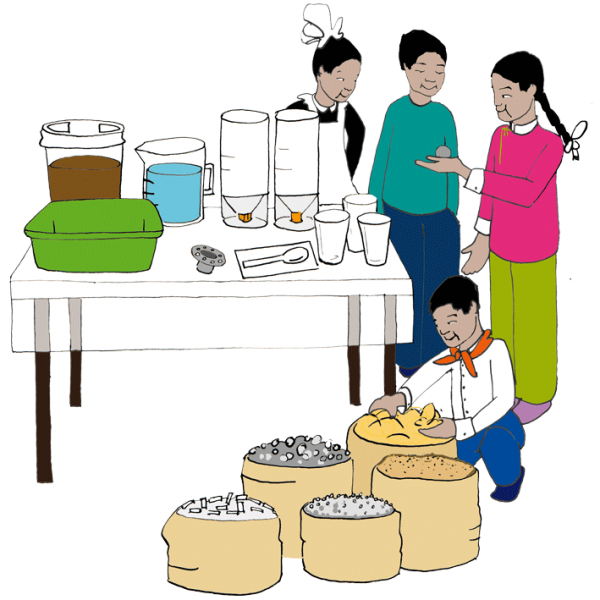
Students experiment with various materials to construct a bottle filter as a simple treatment system for the wastewater generated in the previous unit. By comparing the results from the different filters, students learn that each material has a specific functionality in the filtration process.
Unit 5: Wastewater treatment II – improving the filter
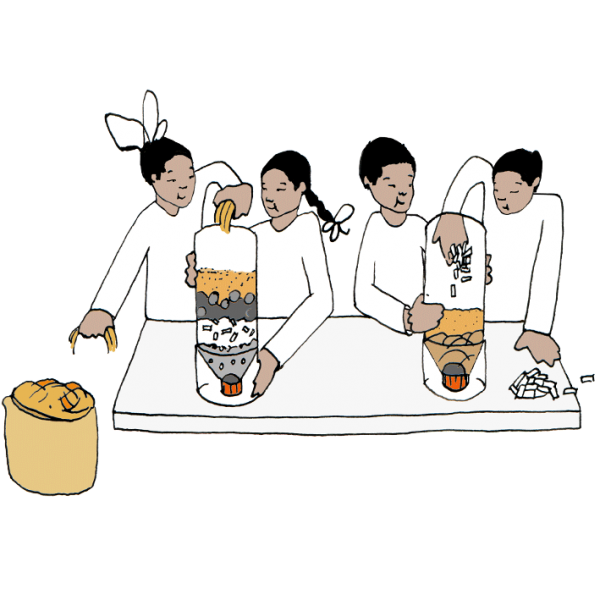
In this unit, students reflect on the best combination of materials to remove more pollutants from the artificial wastewater and construct improved filters. Students measure the quality of the filtered wastewater to decide if it can be reused or not according to a specific water standard.
Unit 6: Treated wastewater for wood (willows) production
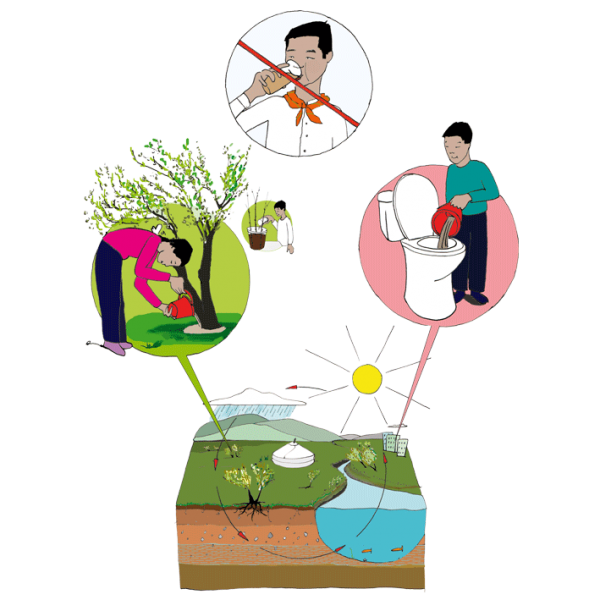
In this unit students discharge the treated wastewater with quality lower than the standard into the toilet. Students learn that the treated wastewater with the same or higher quality than the standard can be used for irrigation of crops and that treated wastewater is a valuable resource.
Unit 7: Excursion to a wastewater treatment plant
Teaching and learning outside the classroom as part of environmental education for sustainable development in: Darkhan, Mongolia
An excursion to a pilot local wastewater treatment and reuse site is a very good way to experience the taught knowledge in the real world. Teachers and students will obtain a deeper insight into the importance and practical relevance of wastewater treatment and reuse for their region/village and will be encouraged to investigate this topic further.
This holistic, detailed introduction to this topic is a prerequisite for the desired awareness that is created through knowledge and experience, which in turn is the basis for a long-term change in attitudes and behaviour.
As part of the MoMo project, an investigation of wood production with pre-treated wastewater is currently being carried out at the Mongolian University of Science and Technology in Darkhan. The intention is to monitor general aspects of the construction and operation of a willow-based wastewater treatment system and to establish conclusions about its applicability for household wastewater treatment. This ecotechnology is based on natural processes of water purification (filtration) and requires low amounts of material, investment and maintenance.
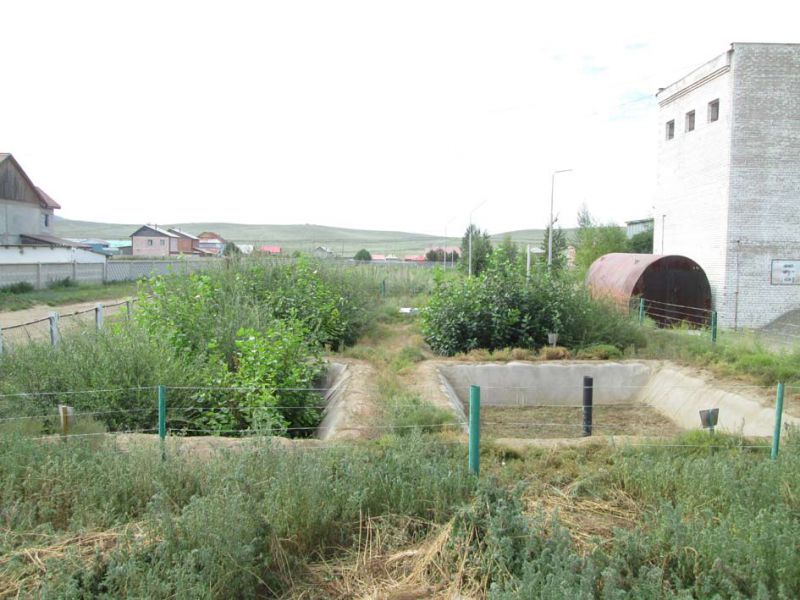
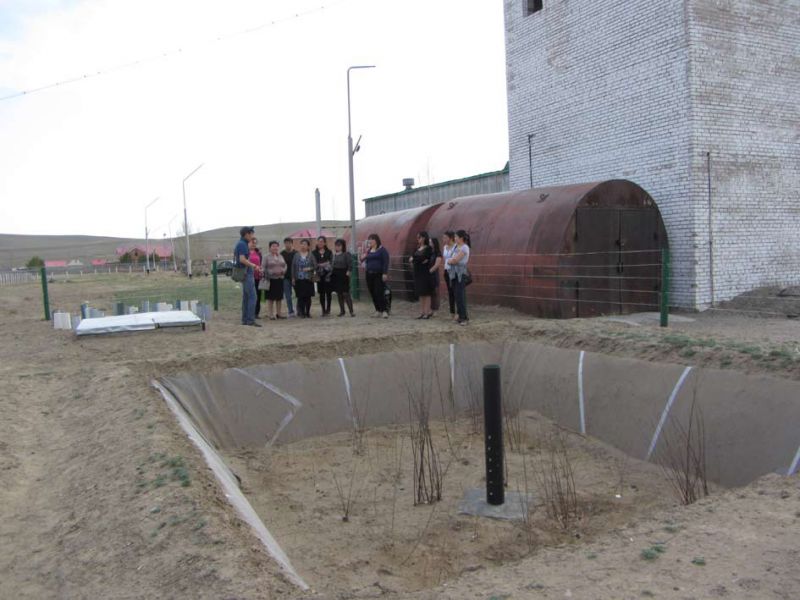
Excursion with teachers in May 2012
